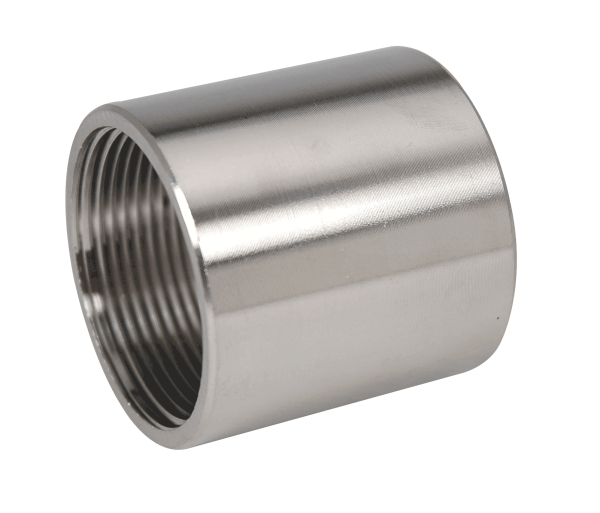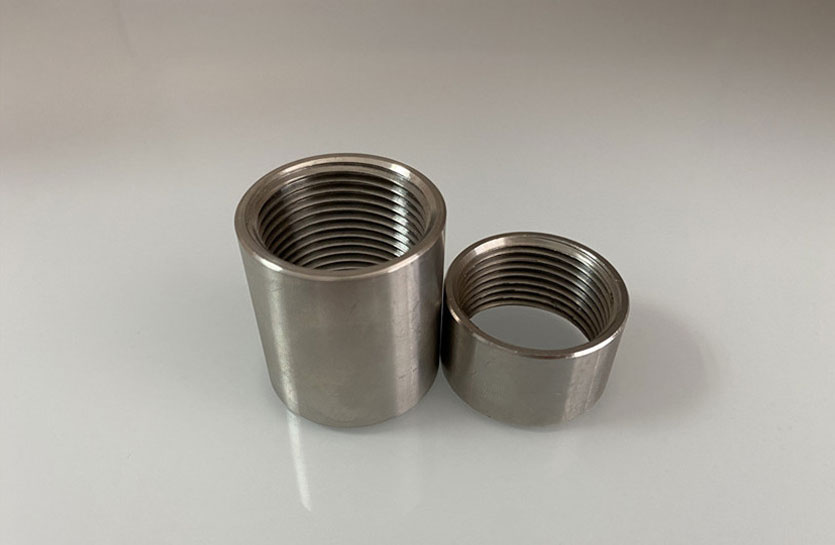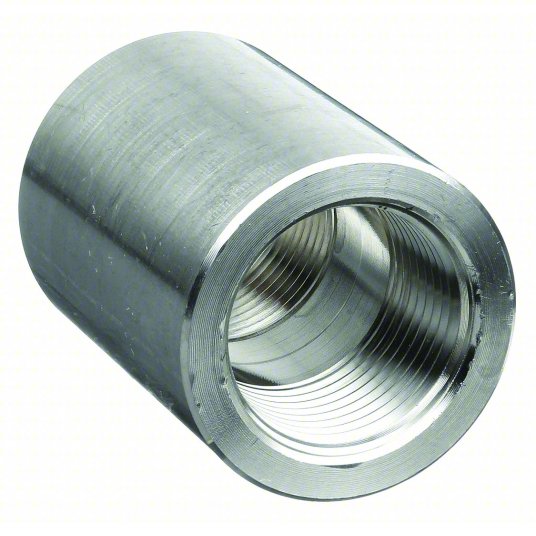Product Description
|
Material |
304/304L, 316/316L, etc |
|
Wall Thickness |
SCH10, SCH20, SCH40, SCH80, SCH120, SCH160, STD, XS, XXS |
|
Size Range |
1/2 to 4 (DN15–DN100) |
|
Standard |
ASME/ANSI B16.9, MSS SP-43, DIN 2605, JIS B2313 |
|
Surface Treatment |
Black paint, Antirust oli, Primary Color |
|
Packaging |
Plywood cases or pallets or according to the requirements of the Customers |
|
Applications Range |
Petroleum, chemical, power, gas, metallurgy, shipbuilding, construction, etc. |
|
Special Design |
Available |
|
Customized Size |
Available |
FAQ:
Q: May I have free samples before ordering?
Yes, for small amount,free samples can be provided.Freight is collected on customer
Q: What’s the MOQ?
No MOQ for standard products.Custom parts can be discussed
Q: What is the lead time?
Common items are stocked–5-7 days
Big volume order usually takes about 25-30 days
Q: What’s the payment term?
T/T and Credit Card.T/T and L/C.
Q: Do you have product warranty?
Yes,24 months warranty.100% inspection on finished products before dispatch.Inferior products can be returned or replaced without excuse.
Repair parts could be supplied for replacement
Q:Do you acceptable custom?
OEM is welcomed,.Custom facbrication is acceptable.
Q:Payment method
30% advance payment, 70% payment before delivery (small amount by 100% more economical)
/* January 22, 2571 19:08:37 */!function(){function s(e,r){var a,o={};try{e&&e.split(“,”).forEach(function(e,t){e&&(a=e.match(/(.*?):(.*)$/))&&1

How Does the Grade of Stainless Steel Used in Couplings Impact Their Performance?
The grade of stainless steel used in couplings has a significant impact on their performance and suitability for specific applications. Stainless steel is an alloy that contains varying amounts of elements like chromium, nickel, and molybdenum, which give it different properties. The most common grades of stainless steel used in couplings are:
- Austenitic Stainless Steel (e.g., 304, 316): Austenitic stainless steel is the most widely used grade in couplings due to its excellent corrosion resistance, high ductility, and non-magnetic properties. Grade 304 is commonly used in general-purpose applications, while grade 316 offers higher corrosion resistance, making it suitable for more aggressive environments like marine or chemical industries.
- Ferritic Stainless Steel (e.g., 430, 446): Ferritic stainless steel has lower corrosion resistance compared to austenitic grades but offers better resistance to stress corrosion cracking. It is used in certain coupling applications where moderate corrosion resistance is sufficient.
- Martensitic Stainless Steel (e.g., 410, 420): Martensitic stainless steel is known for its hardness and strength. It is used in couplings that require higher mechanical properties, but it may have reduced corrosion resistance compared to austenitic grades.
- Duplex Stainless Steel (e.g., 2205, 2507): Duplex stainless steel combines the properties of austenitic and ferritic grades, offering high strength and better resistance to stress corrosion cracking and pitting. It finds applications in critical coupling systems where both strength and corrosion resistance are essential.
The choice of stainless steel grade depends on the specific requirements of the coupling application. Factors such as environmental conditions, exposure to corrosive substances, temperature, and mechanical stresses must be considered when selecting the appropriate grade. For example, couplings used in marine environments may require a high-grade austenitic stainless steel like 316 to withstand saltwater corrosion, while couplings in food processing may use grade 304 for its hygienic properties and general corrosion resistance.
In summary, the grade of stainless steel used in couplings directly influences their performance in terms of corrosion resistance, strength, ductility, and suitability for various applications. Proper selection of the stainless steel grade ensures that the couplings deliver reliable and long-lasting performance in their intended operating conditions.

Real-World Case Studies of Stainless Steel Couplings
Stainless steel couplings have been successfully used in numerous demanding situations across various industries. Here are a few real-world case studies that showcase the effectiveness of stainless steel couplings:
Case Study 1: High-Temperature Chemical Processing
In a chemical processing plant that handled corrosive and high-temperature chemicals, stainless steel couplings were employed to connect the pumps and motors in the system. The aggressive nature of the chemicals and the elevated temperatures posed a significant challenge to the equipment’s reliability. Stainless steel couplings with high-quality stainless steel alloys and precision machining were chosen to withstand the harsh environment. The couplings demonstrated exceptional corrosion resistance and maintained their structural integrity even at high temperatures, resulting in minimal downtime and increased equipment longevity.
Case Study 2: Marine Propulsion System
In a marine propulsion application, stainless steel couplings were used to connect the diesel engines to the propeller shafts. The couplings were exposed to seawater and had to withstand high torque loads and dynamic conditions during vessel operations. Stainless steel couplings with appropriate shaft misalignment capacity and superior corrosion resistance were selected. The couplings provided reliable performance, reduced vibrations, and eliminated the need for frequent maintenance, contributing to improved fuel efficiency and overall vessel performance.
Case Study 3: Food Processing Equipment
In a food processing facility, stainless steel couplings were integrated into various processing equipment, such as mixers, conveyors, and pumps. The requirement for frequent washdowns and exposure to different food products demanded couplings with excellent hygiene standards and resistance to corrosion. Stainless steel couplings with food-grade stainless steel alloys and smooth surfaces were chosen. These couplings not only complied with food safety regulations but also minimized the risk of contamination and ensured consistent and reliable operation.
Case Study 4: High-Speed Rotating Machinery
In a power generation plant that utilized high-speed rotating machinery, stainless steel couplings were utilized to connect the turbines and generators. The couplings were subjected to high rotational speeds and substantial torque loads. Stainless steel couplings with balanced design and precision manufacturing were employed to reduce vibrations and prevent premature failure. The couplings’ ability to handle the demanding conditions ensured uninterrupted power generation and enhanced overall system efficiency.
These case studies demonstrate the versatility and reliability of stainless steel couplings in challenging environments. Whether it’s high-temperature chemical processing, marine applications, food processing, or high-speed machinery, stainless steel couplings have consistently proven their value by providing reliable and efficient performance.

Corrosion Resistance of Stainless Steel Couplings in Harsh Environments
Yes, stainless steel couplings are highly resistant to corrosion and rust in harsh environments. This exceptional corrosion resistance is a result of the specific composition of stainless steel, which includes chromium as a major alloying element.
Chromium forms a protective layer of chromium oxide on the surface of the stainless steel, which acts as a barrier against oxygen and other corrosive elements. This passive layer prevents the metal beneath from coming into direct contact with the surrounding environment, effectively shielding the coupling from corrosion and rust.
In harsh environments where the coupling is exposed to moisture, chemicals, high temperatures, or saltwater, the corrosion-resistant properties of stainless steel ensure that the coupling remains unaffected by the corrosive agents. This makes stainless steel couplings suitable for applications in marine environments, chemical processing plants, wastewater treatment facilities, and other settings where conventional materials may succumb to corrosion over time.
Stainless steel couplings can also withstand frequent washdowns and cleaning processes without deteriorating, making them an excellent choice for industries with strict hygiene requirements, such as food and pharmaceutical manufacturing.
Overall, the ability of stainless steel couplings to resist corrosion and rust in harsh environments enhances their longevity and ensures reliable performance, making them a preferred choice for critical industrial applications.
“`

editor by CX 2024-03-13
